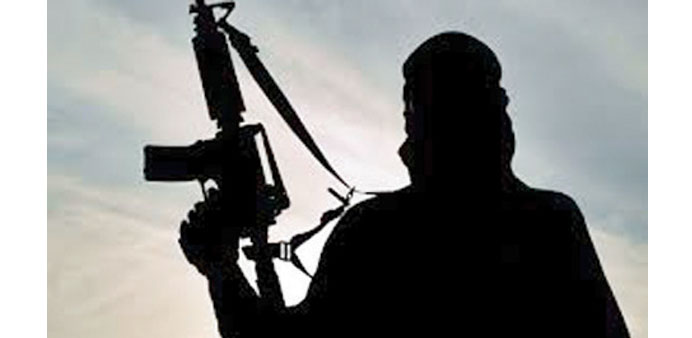IANS/New Delhi
Indian Mujahideen, whose India head Tehsin Akhtar and four other activists were arrested last week from the India-Nepal border and Jodhpur, began as a small group of radicalised youth and now has operations spread through South Asia, investigators said.
Officials studying their operations and antecedents say IM took the present name only after it carried out its first strike in 2007 through simultaneous bombings in three cities of Uttar Pradesh.
Police sources India’s first homegrown terror organisation had started as a small group called Usbah over 10 years back and declared its name as Indian Mujahidin through an e-mail after the 2007 serial bombings in courts in Varanasi, Faizabad and Lucknow which killed 18 people.
Usbah is an Arabic word used for a group that has more than 11 men but less than 40, police sources said.
They said that Usbah included Ahmed Siddi Bapa Zarar alias Yasin Bhatkal, one of the ringleaders, who was arrested last year. The group started meeting in Bhatkal town in Karnataka after the government banned the Students Islamic Movement of India (SIMI) in 2001. The sources said Yasin Bhatkal was one of the active members of SIMI.
The sources said the main objective of Usbah was to bring together persons who were indoctrinated and motivated to take part in jihad. They said meetings of Usbah started taking place on a regular basis, generally on a Friday, in the house of Iqbal Bhatkal and issues like weapon training and financing were discussed.
As the group expanded its operations, it also included men from Azamgarh, Pune and other small towns.
The sources said that apart from Yasin Bhatkal, the co-founders of the Indian Mujahideen which was banned in 2010 included Iqbal Bhatkal, his brother Riyaz Bhatkal, Jasim, Shabbir, Sajid, Afeef, Gora Ismail alias White Uncle, Sultan, Tariq Anjum and Fashih Mahmood.
The sources said the Bhatkal brothers, who are top operatives of the outfit at present, are now based in Pakistan.
“The revelations about IM’s working came to light after the interrogation of Yasin Bhatkal,” a police official, who did not want to be identified, said.
Yasin Bhatkal and his associate Asadullah Akhtar were arrested in August 2013 in Motihari town of Bihar by the National Investigation Agency (NIA) along with Bihar police. “IM has its operatives in Bangladesh, India, Nepal and Pakistan,” said the official.
Bhatkal, in his interrogation, also revealed that the larger aim of IM was to radicalise susceptible youth on religious lines and to induce them to participate in terrorist acts.
“The organisation is receiving financial and material assistance from Inter Services Intelligence (ISI). The agency is providing shelter to operatives in places such as Karachi,” said the official.
A new module of IM was busted in Rajasthan last week when its bomb making expert Zia Ur Rehmand alias Waqas along with three other operatives were arrested. Police said most of IM’s operatives were radicalised Muslim youth from India, though now some Pakistanis have also joined its ranks.
Indian agencies are still not clear about the strength and spread of this outfit but claim to have busted many of its “operating modules” in India. The outfit seems to be on the lookout for “IT experts” to join its ranks as all the three arrested from Jodhpur this week had technical and IT skills, said the investigators.

